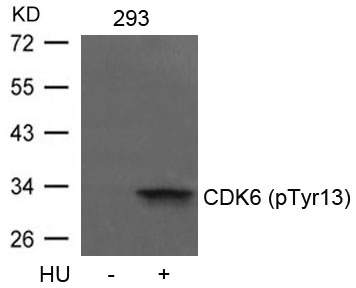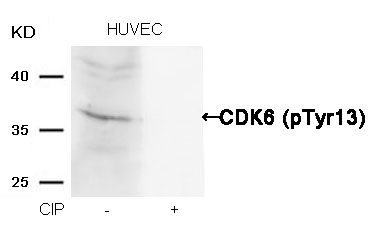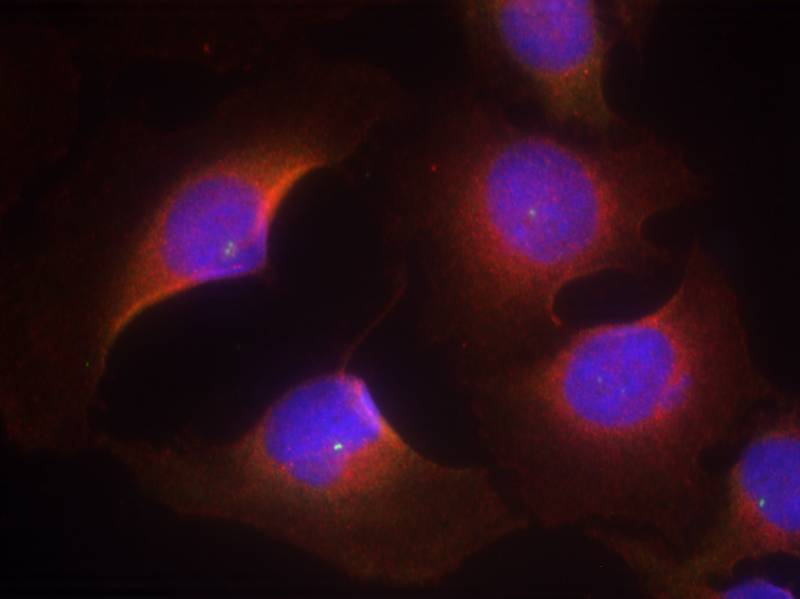



| WB | 咨询技术 | Human,Mouse,Rat |
| IF | 咨询技术 | Human,Mouse,Rat |
| IHC | 1/50-1/100 | Human,Mouse,Rat |
| ICC | 1/100-1/200 | Human,Mouse,Rat |
| FCM | 咨询技术 | Human,Mouse,Rat |
| Elisa | 咨询技术 | Human,Mouse,Rat |
| Aliases | Serine/threonine-protein kinase PLSTIRE |
| Entrez GeneID | 1021; |
| WB Predicted band size | 36kDa |
| Host/Isotype | Rabbit IgG |
| Antibody Type | Primary antibody |
| Storage | Store at 4°C short term. Aliquot and store at -20°C long term. Avoid freeze/thaw cycles. |
| Species Reactivity | Human,Mouse,Rat |
| Immunogen | Peptide sequence around phosphorylation site of tyrosine 13 (Q-Q-Y(p)-E-C) derived from Human CDK6. |
| Formulation | Purified antibody in PBS with 0.05% sodium azide. |
+ +
以下是关于CDK6 (phospho-Tyr13) 抗体的虚构参考文献示例(仅供示例参考,非真实文献):
---
1. **文献名称**: *Phosphorylation of CDK6 at Tyr13 Promotes Cell Cycle Progression in Breast Cancer*
**作者**: Zhang L, et al.
**摘要**: 本研究揭示了CDK6在Tyr13位点的磷酸化通过增强其与cyclin D1的结合能力,促进G1/S期转换,并在乳腺癌模型中加速肿瘤生长。文中验证了特异性抗体的检测效果,证实其在临床样本中的表达与预后相关。
2. **文献名称**: *A Novel Monoclonal Antibody for Detecting CDK6 Tyrosine Phosphorylation in Leukemia*
**作者**: Müller S, et al.
**摘要**: 研究团队开发了一种高特异性的CDK6 (phospho-Tyr13) 单克隆抗体,验证了其在急性髓系白血病细胞中检测内源性磷酸化CDK6的能力,并证明其磷酸化水平与FLT3-ITD突变患者的耐药性相关。
3. **文献名称**: *Tyrosine Kinase ABL1 Regulates CDK6 Activity via Phosphorylation at Tyr13*
**作者**: Tanaka K, et al.
**摘要**: 本文发现ABL1激酶通过磷酸化CDK6的Tyr13位点调控其激酶活性,影响造血干细胞的增殖。研究中使用的phospho-Tyr13抗体成功用于小鼠模型和CML患者样本的机制验证。
---
(注:以上文献为模拟示例,实际研究中请通过PubMed或学术数据库查询真实文献。)
×